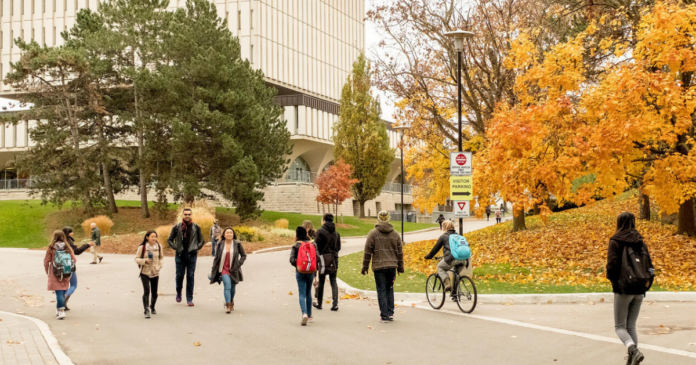A new survey on campus free expression has found that 63% of Canadian undergraduate students fear professional consequences for expressing their honest thoughts and opinions during class.
Some of the formal sanctions students fear are being given lower grades by their instructor, having an instructor refuse to write them a letter of recommendation, or having a classmate file a complaint against them. But students also feared social consequences, such as being criticized by a peer on social media or being disliked by their professor.
Further, 40% of respondents claim to have experienced negative consequences after airing their thoughts on controversial topics, such as being reprimanded by university faculty or staff or denounced on social media by classmates or instructors.
The fall 2024 survey, commissioned by viewpoint diversity organization Heterodox Academy, also found that over half of respondents approve of some restrictions on campus free speech.
Canadian students show reluctance to bring up sensitive topics in class. The Israel-Hamas war is the subject with the highest level of reluctance.
Over 54% of surveyed students reported reluctance in discussing the Israel-Palestine conflict, 51% say they are uncomfortable bringing up transgenderism, and 45% don’t want to talk about politics on campus at all.
In contrast, students felt very comfortable discussing climate change and diversity, equity, and inclusion in their lecture halls and seminars. Regardless of whether they consider themselves conservative or progressive, 70.4% are comfortable talking about climate change, and 72% feel free on the topic of DEI.
Students who lean “very left” or “very right” on the political spectrum are much more likely to report feeling comfortable discussing controversial issues compared to those who are politically moderate. However the survey authors point out, “when only the most ideologically extreme students engage in campus discussions on controversial topics, the quality of discourse may suffer.”
“Those on the political extremes are more likely to exhibit confirmation bias, closed-mindedness, and motivated reasoning, turning discussions into echo chambers rather than productive exchanges aimed at deeper understanding,” the authors continued.
The 1,548 respondents to the survey represented over 250 higher education institutions in Canada, ranging from large universities to small colleges.















